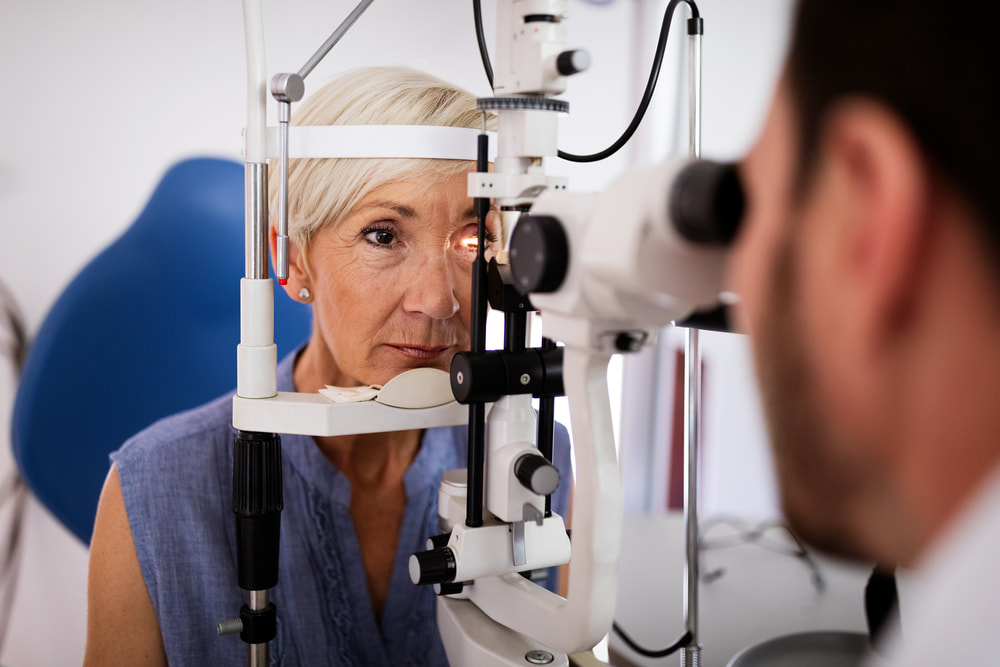What is glaucoma?Glaucoma is a very common eye disease that occurs most often in older adults. According to the American Academy of Ophthalmology (AAO), it is the most common cause of vision loss in people 60 and over. Glaucoma involves damage to the optic nerve. It can develop when the fluid in the front of the eye builds up, which increases pressure in the eye. That excess pressure can damage the optic nerve. Most people do not know they have glaucoma at first. There are usually no early symptoms. Depending on the form of glaucoma, symptoms may vary in onset and severity. Symptoms may include:
According to the AAO, the most common form of glaucoma is primary open-angle. This develops over time when fluid in the eye does not drain properly and pressure builds up. But there are also other forms of glaucoma. Uncommon forms of glaucomaIn addition to the most common type of glaucoma, there are other forms that are considered rare, including the following: Childhood glaucoma According to the Glaucoma Research Foundation, childhood glaucoma occurs in about 1 in 10,000 births. This form of the disease occurs when fluid cannot drain properly from the eye due to a defective or blocked eye drainage system. Treatment: The treatment recommended for childhood glaucoma depends on the severity. In most cases, options include laser surgery and/or medications. Medications may include eye drops that lower eye pressure. Laser surgery may include a procedure that creates a new channel for the fluid to drain from the eye, which also lowers eye pressure. Neovascular glaucoma Neovascular glaucoma occurs when abnormal blood vessels form on the iris and cover the eye’s drainage channels. The vessels block the fluid and prevent it from exiting. This form of glaucoma is most often associated with diabetes. Treatment: Treatment typically includes treating the underlying disease that led to abnormal vessel growth. In some cases, a drainage implant is surgically placed. The implant promotes drainage of fluid from the eye, lowering eye pressure. Irido corneal endothelial syndrome Irido corneal endothelial syndrome is a type of glaucoma which typically only involves one eye. It occurs when cells on the surface of the cornea spread across the iris and cover the eye’s drainage tissue. Eye pressure may increase, leading to damage to the optic nerve. Additionally, the cells may also form adhesions binding the iris to the cornea. This also blocks the drainage channels. Treatment: This form of glaucoma is considered difficult to treat. Treatment usually involves medications or filtering surgery to create a drainage hole called a sclerostomy. This new opening allows fluid to drain out of the eye. General glaucoma preventionYou may not be able to prevent all instances of glaucoma, but there are things you can do to lower your risk and reduce your chances of vision loss. Consider the following tips:
Get regular eye exams: Since there are often no early symptoms of glaucoma, you can have the condition without even knowing. But a diagnosis can be made through an eye exam. Protect your eyes: Certain types of eye injuries may increase your risk of traumatic glaucoma. Wear appropriate protective eyewear when playing sports or doing home projects. Don’t smoke: Smoking may increase your risk of certain eye diseases, including glaucoma. If you smoke, talk to your doctor about ways to break the habit. By learning more about glaucoma, you can increase the chances of early diagnosis and treatment to preserve vision. If you would like to talk about whether an appointment with one of our eye doctors would be appropriate at this time, call our office at 508-746-8600. Comments are closed.
|
EYE HEALTH BLOGCategories
All
Archives
July 2024
|
|
Kadrmas Eye Care New England
55 Commerce Way, Plymouth, MA 02360
14 Tobey Road, Wareham, MA 02571 133 Falmouth Road (Rt 28), Mashpee, MA 02649 |
Phone Number:
1-508-746-8600 Hours: Monday through Friday — 8 AM – 4:30 PM |


 RSS Feed
RSS Feed
